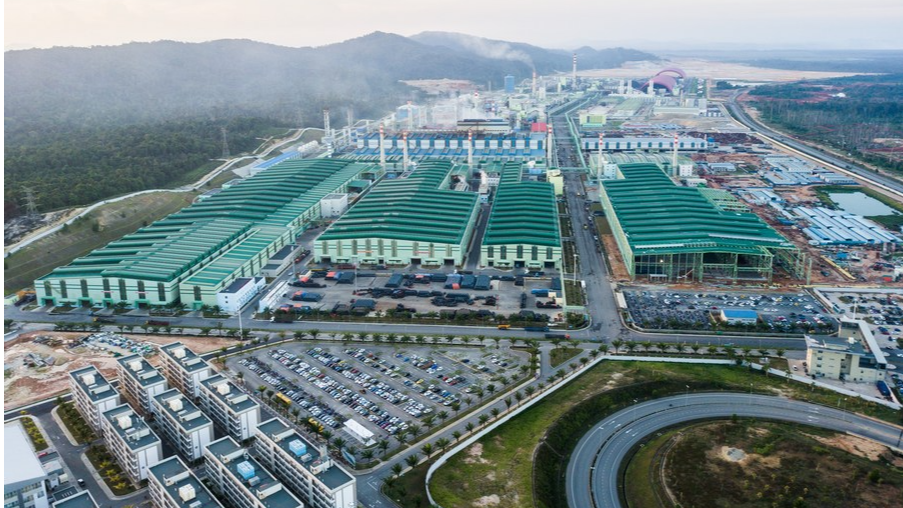
Malaysia welcomes investments from China that can contribute to the development of its green and digital industries, said the Southeast Asian nation’s former transport minister.
For the last 3 to 4 years, Malaysia has been talking about green energy and innovation. And the big companies from China are making significant investments in this sector, said Wee Ka Siong, president of the Malaysian Chinese Association. Wee served as Malaysia’s minister of transport in 2020-22.
“(The companies from China) are doing something that is in line with the policy of the (Malaysian) government, so we welcome all these investments,” said Wee, adding that he hopes the Chinese companies can increase their investment portfolio in Malaysia and create more job opportunities for local people.
ALSO READ: ASEAN urged to speed up green energy transition
Malaysia has set a goal to become a digital economy hub in Southeast Asia, with the aim of making its digital economy contribute 25.5 percent of the nation’s GDP by 2025, up from the current 23.3 percent
This year marks the 50th anniversary of diplomatic relations between China and Malaysia. Speaking to China Daily in Kuala Lumpur, on May 7, after attending the Malaysia-China Commemorative Forum, an event co-organized by China Daily, Wee said the investments by Chinese companies in Malaysia have generated mutual benefits for both countries and he hopes this relationship will continue.
Malaysia has set a goal to become a digital economy hub in Southeast Asia, with the aim of making its digital economy contribute 25.5 percent of the nation’s GDP by 2025, up from the current 23.3 percent.
Attracted by the country’s huge prospects, Chinese companies such as Huawei, Alibaba, and BYD have become key players in Malaysia’s push to accelerate its digital and green economic growth.
In March, Huawei inked a memorandum of understanding with Malaysia’s leading integrated telecommunications provider Maxis to work on a 5G-advanced, or 5.5G, acceleration program. The two companies will work with solution providers to drive applications and innovation of the relevant ecosystem.
Before the MoU, the two companies successfully showcased the first 5.5G technology trial in Malaysia and Southeast Asia, which included a single-user live speed test to demonstrate the 5.5G telecom network’s capability to achieve ultra-fast peak speeds of up to 8Gbps.
Meanwhile, after entering the Malaysian market in December 2022, BYD, China’s biggest electric vehicle (EV) maker, has received more than 10,000 orders, accounting for more than 40 percent of the local EV market.
“The figure showed the recognition from the Malaysian consumers of BYD’s products and technology. But what is more important is that many consumers get to know the future direction of economic development through EVs,” said Liu Xueliang, general manager of BYD Asia Pacific’s auto sales division, and president of BYD Japan.
ALSO READ: China-Malaysia ties reach new horizons of cooperation
Liu said he has noticed the gradual growth of EV-related industries in Malaysia, such as charging stations and intelligent connectivity.
“There will be some fundamental changes in (the country’s transport) infrastructure with the development of EVs,” said Liu.
Liu said there is huge potential in the economic cooperation between China and Malaysia, which can provide opportunities for Chinese companies to jointly work with their Malaysian partners in the green economy.
The cooperation between China and Malaysia may also generate new products or ideas that can be exported to other markets, said Liu.
Malaysia and China should collaborate more in the electronics and electrical industries, moving from the assembly of chips and electronic equipment to integrated circuit design, said Koh Tsu Koon, chairman of the board of governors at Wawasan Open University, which offers online programs for working adults.
Koh is also former chief minister of northwest Malaysia’s Penang state.
“The IC (sector) has been dominated by the United States … and China is now an emerging player in this industry, so I think this will offer great opportunities for collaboration between China and the Association of Southeast Asian Nations,” said Koh, noting this is particularly important for Penang, Kuala Lumpur and Johor – the three main centers of Malaysia’s electronics and electrical design industries.
Noting that Chinese companies have been actively engaged in infrastructure projects in Malaysia over the past decade, Wee, the former transport minister, said he hopes more Chinese companies can invest in Malaysia and foster collaboration in other areas including information technology.
He said Malaysia also needs to encourage more students to go to China to learn from the world’s second largest economy.
Malaysia should also attract more Chinese students to foster a good bilateral relationship through youth exchange, said Wee.


